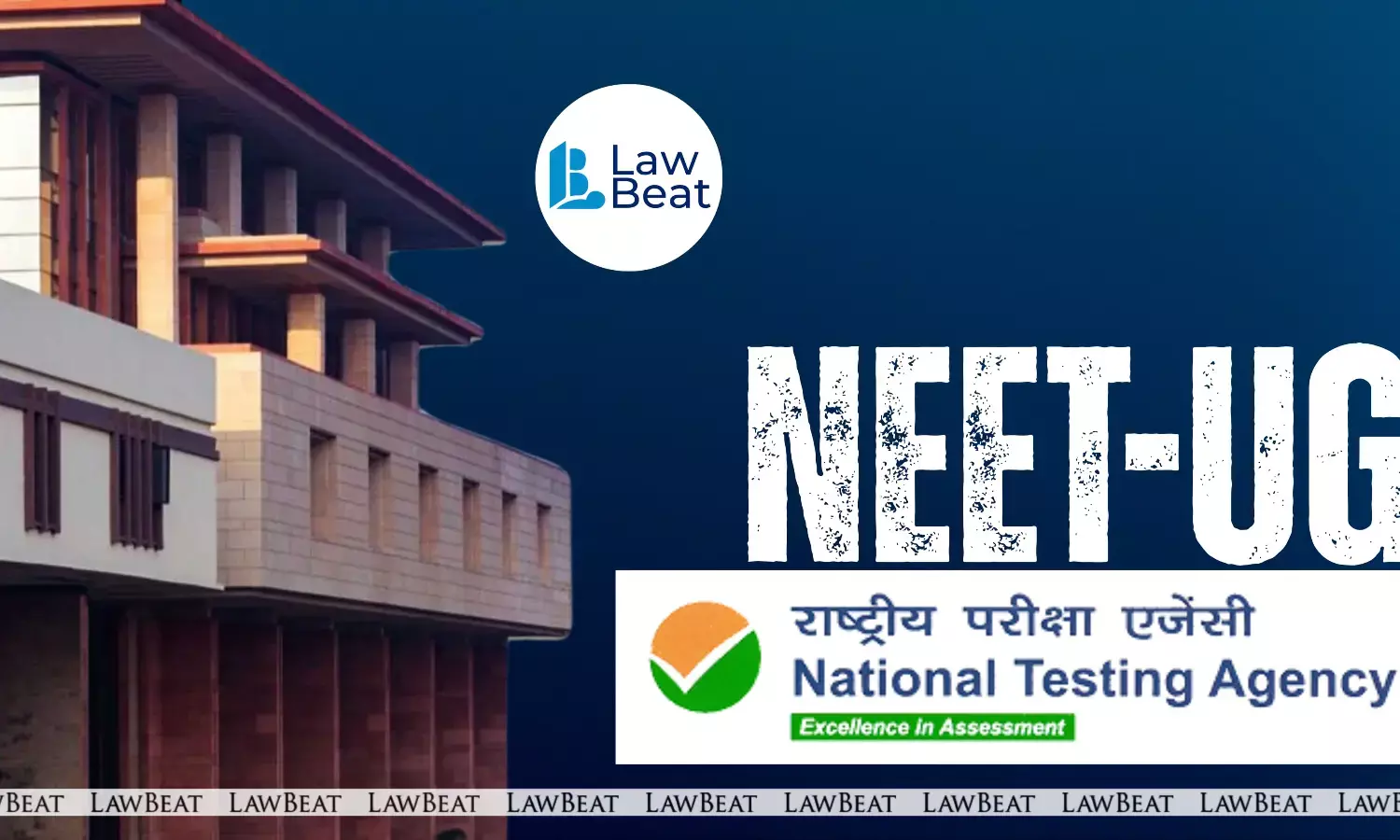Delhi HC Rejects Grace Marks in NEET UG Over Biometric Glitches, Seeks Systemic Reform

In a significant judgment concerning the National Eligibility-cum-Entrance Test (NEET-UG), the Delhi High Court has directed the National Testing Agency (NTA) to streamline the biometric verification process for the conduct of future examinations.
The 30-page judgment, authored by Chief Justice D.K. Upadhyaya and Justice Sachin Datta, stated:
“The appellant (NTA) is directed to streamline the biometric processes for the conduct of future examinations.”
While partially setting aside the single judge’s order, the division bench upheld the direction to establish a grievance redressal mechanism, observing:
“This Court agrees with the directions passed by the learned single judge to the effect that it would be apposite for the NTA to constitute a Grievance Redressal Framework to examine the complaints/grievances of candidates, in the first instance, in a time-bound manner.”
The plea before the court was filed by the NTA, assailing the single judge’s order that had granted grace marks and supernumerary ranks to certain NEET UG candidates, based on the normalisation formula laid down by the Supreme Court in Disha Panchal v. Union of India (2018).
It was the petitioners’ case that even though they had reached the centre on time, disturbances and loss of time took place at the centre due to the failure of biometric verification, as a result of which there was a delay in authentication. Following the failure of biometric verification, the petitioners were asked to submit a written undertaking to the Centre Superintendent before entering the hall.
It was therefore contended that the entire process resulted in the petitioners entering and being seated in the examination hall just in the nick of time, prior to the commencement of the examination. During the course of the examination, the petitioner was required to undergo Aadhaar verification once again and to re-submit the undertaking, as a result of which crucial time was lost.
During the proceedings, the NTA had argued that reliance upon the judgment in Disha Panchal (supra) for the purpose of adjudicating the petition by the single judge was completely misconceived, as the said judgment pertains to a Computer-Based Test (CBT), which is quite distinct from the pen-and-paper OMR-based examination of NEET (UG).
It was further submitted that the petitioners had arrived later than the scheduled time, and their biometric verification could not be completed due to the locking of their Aadhaar authentication.
Opposing the plea, the counsel for the petitioners argued that the allegation regarding candidates having locked their biometrics for Aadhaar authentication is factually misconceived. The counsel argued that the normalization principle formulated in Disha Panchal remains the prevailing law and has not been disapproved in any subsequent judgment.
Declining to award grace marks, the court said, “In this background, there is merit in the contention of the learned counsel for the appellant that the difficulty in the biometric authentication of the concerned candidates in the present cases was attributable to the conduct of the concerned examinees (writ petitioners) themselves.”
Court added that it does not find the Disha Panchal (supra) methodology to be applicable in the present cases.
“It is also noticed that the methodology adopted in Disha Panchal (supra) was intended as a compensatory adjustment based on proven time loss. However, in the present case, the said mechanism has been extended for the purpose of giving ‘grace marks’, which arguably distorts merit and goes beyond the scope of Disha Panchal (supra).”
Cautioning that awarding compensatory marks for biometric delays could open the floodgates to a slew of similar claims, the court said,"There is also a larger issue that concerns the Court viz. the chaotic consequences of extending ‘marks improvisation’ for individual delays in biometric authentication for reasons not attributable to the testing agency. Such an approach would open the floodgates to claims by candidates who experienced even minor technical delays in biometric authentication.”
Accordingly, the court disposed of the present appeals.
For Appellant: Mr. Rupesh Kumar, Sr. Adv. along with Ms. Pankhuri Srivastava, Ms. Sarica Soam, Mr. Alekshendra Sharma and Mr. Aditya Kumar, Advs.
For Respondents: Mr. Gautam Narayan, Sr. Adv. along with Mr. Udayan Verma, Ms. Asmita Singh and Ms. Disha Joshi, Advs. for R-1. Mr. T. Singhdev, Adv. along with Mr. Abhijit Chakravarty, Ms. Anum Hussain, Mr. Sourabh Kumar, Mr. Tanishq Srivastava, Ms. Yamini Singh, Mr. Vedant Sood and Ms. Bhanu Gulati, Advs. for R-2/NMC.
Case Title: National Testing Agency v. Satya Nishth & Ors.
Judgment Date: August 6, 2025
Bench: Chief Justice Devendra Kumar Upadhyaya and Justice Sachin Datta
